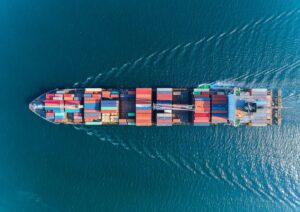Is software development manufacturing?
 The case for weightless exports
The case for weightless exports
Say “manufacturing” and most people picture sparks from a weld, sawdust from timber, or the whir of a CNC. We equate it with the physical and tangible.
But what if our most scalable factories don’t make anything you can touch? What if software, intangible, weightless and infinitely reproducible, is already the most powerful manufacturing industry we have?
David Altana is Head of Growth & Partnerships at SmartSpace.ai & Co-Founder & Host of The Better SMB Podcast. david@altana.solutions
Rob Bull is Director of the New Zealand Lean Academy rob@nzla.nz

It’s time we asked: Could software development be manufacturing?
Manufacturing Principles, Different Medium
‘Manufacturing’, according to Wikipedia, is the creation or production of goods with the help of equipment, labour, machines, tools and chemical or biological processing or formulation. If you strip away the noise, manufacturing is about applying discipline to value creation:
Standards before scale – chaos doesn’t scale. Whether it’s ISO audits on a production line or unit tests in a dev pipeline, quality comes from codified standards.
Flow, not friction – lean talks takt time, bottlenecks and waste; Agile talks sprint velocity and backlog. Both are obsessed with minimising waste and maximising throughput.
Customer Focus – whether it’s gearboxes or gigabytes, real manufacturing starts with solving actual customer problems, not filling time.
Global scalability – once the process is right, standard processes are created, every extra unit costs marginally less. For plastics, that’s running another shift. For SaaS, it’s another thousand users for near-zero marginal cost.
By those measures, software development is not only manufacturing, it’s the purest form we’ve ever had.
The Scale Problem with “Stuff You Can Grow”
New Zealand’s export story is dominated by the primary sector. Food and fibre exports are worth ~NZ$55–60 billion a year, more than half of all exports. These are vital, but constrained. You can only milk a cow so many times and grow so many hectares of fruit or timber. At best, these industries grow, but they don’t scale.
Traditional manufacturing (goods-based) contributes around NZ$38–40 billion a year. That matters. But it too is tethered to physical inputs, energy, shipping lanes and supply chain risks.
Then there’s software: NZ$3.1 billion in exports today. Small in comparison, but a sector with the unique ability to scale without constraint. No drought, shipping delays or freight costs. Software is manufactured once and exported everywhere.
This is what we mean by “weightless exports” and it’s exactly the diversification our economy needs.
Proof We Can Do It: Kiwi Software Success Stories
We don’t need theory. The examples are already here.
 From a Wellington start-up in 2006 to one of NZ’s most valuable companies, with millions of subscribers across 180 countries. Its acquisition of Melio shows what’s possible when SaaS manufacturing meets global demand.
From a Wellington start-up in 2006 to one of NZ’s most valuable companies, with millions of subscribers across 180 countries. Its acquisition of Melio shows what’s possible when SaaS manufacturing meets global demand.
A Tauranga-based legaltech Saas offering making Deloitte’s Fast 50, raising significant capital, and openly aspiring to follow Xero’s global trajectory.
Auror.Exporting Kiwi SaaS smarts in retail crime prevention and health tech. Both part of Microsoft’s Scaling SaaS Exports Initiative; global players born here.

 Did you know, the NZ Game Dev industry grew 26% in 2024? That’s ten times global rates and is on-track to hit $1 billion in exports!
Did you know, the NZ Game Dev industry grew 26% in 2024? That’s ten times global rates and is on-track to hit $1 billion in exports!
Path of Exile grew to 240 staff and has paid almost $100 million in dividends back to its (Chinese) parent and shows what’s possible when true global scale is achieved.
Rocket Werkz, Founded by DayZ creator Dean Hall, has global partnerships and bold ambitions.
These firms prove software is already a manufactured export. Each one is disciplined, process-driven, quality-focused and scaling globally.
There are many other manufacturing examples where software is the primary output but also supported with the hardware to deliver the software product. Look hard enough and New Zealand is littered with world-class examples.
These businesses can create strength in the regions, not just the main cities. You just have to drive into Waikato Innovation Park and look who is based there – Torutek, Smartrak, Map of Ag, MoreforApps and the list goes on, SMEs driving growth through code and technology.
Why Treating Software as Manufacturing Matters
This isn’t just semantics. Recognising software as manufacturing reframes how we support, invest in and celebrate it:
Decoupling from natural limits – primary exports rely on land, climate, and biosecurity. Software doesn’t. Its scaling depends only on talent and process.
Resilience against shocks – weightless exports don’t face port bottlenecks, droughts, or commodity cycles. They strengthen national resilience.
Shared discipline – software has the same DNA as high-performance manufacturing: rigorous quality, continuous improvement, standardisation, customer pull. It’s not foreign to us, it’s an evolution.
Productivity multipliers – every software development success not only earns export dollars but also delivers high-value jobs while embedding tools that lift productivity across the domestic economy. Think of Xero shortening accounting time, or gaming studios pushing graphics and design into other sectors.
Compounding impact – each additional software firm scales faster and further than the one before. The more we have, the bigger the national uplift.
If we’re serious about fixing our productivity crisis, software exports are a lever we can’t ignore.
The Cultural Challenge
We put milk powder and logs on a pedestal and treat software like a niche sideshow. As if exports only “count” if they’re shipped in a container.
This mindset is costing us. Every time we dismiss software as “not real manufacturing,” we undercut the very industries with the greatest capacity to scale and diversify our economy.
The truth is simple: physical or virtual, the principles of manufacturing excellence haven’t changed. We need to stop clinging to outdated definitions.
The Factory of the Future Writes Code
So, let’s ask again: is software development manufacturing? The answer matters.
If we say no, we continue to define our export future by industries that can only grow linearly, bound to land, weather and finite supply.
If we say yes, we open the door to treating gaming, fintech and digital products as core pillars of our export strategy, investing in them with the same seriousness we apply to manufacturing and other industries.
The challenge is cultural, not technical. We already have the talent, the examples and know-how. Software manufacturing can happen anywhere in New Zealand, supporting the regions, decreasing pressure on transport infrastructure. The question is whether we have the ambition to call software what it is: manufacturing.
If we keep celebrating industries that grow, and not those with true potential to scale, New Zealand will stay stuck.



